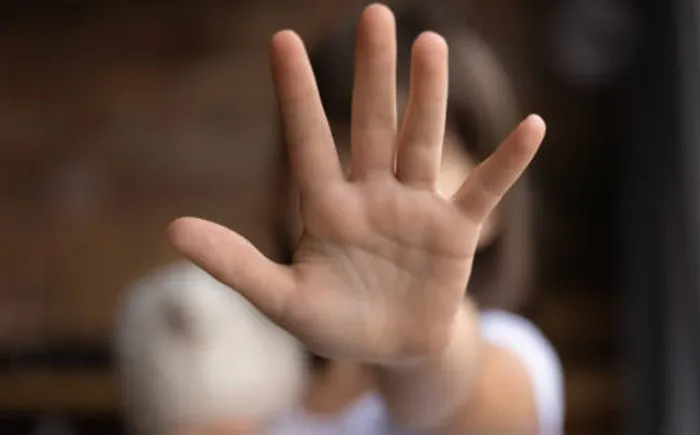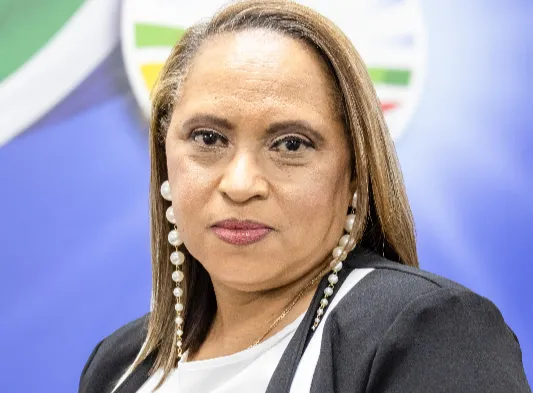KZN crime statistics highlight loopholes for sexual offenders in accessing society’s most vulnerable
Change is needed

Recent high-profile sexual offence cases in KZN include a 12-year-old Reservoir Hills pupil being sexually groomed by a teacher and a six-year-old Esikhaleni pupil who was allegedly raped while at school.
Image: File
THE recent revelation - as part of the fourth quarter SAPS crime statistics - that KwaZulu-Natal (KZN) had the highest number of rape cases within educational facilities demands urgent and focused attention.
This amid reports of a growing number of sexual offences against children and following the Education Labour Relations Council (ELRC) 2024/2025 report expose that a staggering 39 educators in South Africa were convicted of such crimes against learners while at school.
Recent high-profile sexual offence cases in KZN include a 12-year-old Reservoir Hills pupil being sexually groomed by a teacher and a six-year-old Esikhaleni pupil who was allegedly raped while at school. The horror of the situation is highlighted by a recent post by Jess Foord, of the Jess Foord Foundation, who stated that “a South African girl has more chance of being raped than learning to read”.
This is the sad reality of sexual offences against children in KZN.
The crime statistics – for the period January 1 to March 31 - further revealed that 80 cases of rape were reported in South Africa, with KZN making up 48 of these.
This figure forms part of a total of 2 127 reported cases of sexual offences in KZN during the same three months – a number that is increasing each quarter.
The statistics also revealed that the Inanda SAPS had the second highest number of reported sexual assault cases in South Africa, with a 6.4% increase in the number of cases compared to the previous quarter.
This while Empangeni SAPS recorded the third highest number of rape cases country-wide, with an alarming 32.8% increase from the previous quarter.
It is clear that this growing epidemic – whether within our schools, at work, our homes or our neighbourhoods - is not being properly addressed.
Compounding the situation is the inability of SAPS in KZN to ensure proper law enforcement when it comes to sexual offenders. This has led to many victims withdrawing charges and numerous cases being thrown out of court due to insufficient evidence for prosecution.
Sexual offences, particularly those against children, also often cause various health issues, in particular mental health issues. This is amplified by little support or protection for victims who come forward to report such cases and who often still have to face their perpetrators on a daily basis.
While South Africa’s sex offender register is currently unavailable to the public, government, businesses and education institutions are able to access it to vet staff before they are employed. It is imperative that this takes place. Our schools, universities, NPOs, NGOs and those government institutions and businesses that work with vulnerable members of society must vet staff to ensure that they are not exposed to sex offenders.
There is however a gap in the system. The sex offenders register only lists those convicted and not those accused or reported for sexual offences. This leaves the door wide open for offenders to access spaces where they can commit further sexual offences against vulnerable populations. This must change.
It is clear that in order to be effective, the sex offenders register must become publicly available. It must also include a list for repeat offenders, whether criminally charged or not and a list of those who stand accused – which is not available to the general public – and whose names are then added to the public list in the event that they are found guilty.
As part of the KZN’s Government of Provincial Unity (GPU), the DA will approach its national counterparts, within both the social development and education sectors, in a bid to lobby for a change in legislation to ensure this takes place.
We have long advocated for a whole-of-society approach to deal with South Africa’s horrific rape statistics.
In KZN, this approach demands that the departments of Health, Education and Social Development work together with NGOs/NPOs, community organisations, businesses, religious institutions, schools, sports clubs and other community groups to educate young people about rape, its effects on society and its consequences.
A whole-of-society approach also demands that parents, teachers, neighbours, coaches, youth leaders, religious leaders and businesses partner together to ensure that both adults and children are properly educated and to ensure that appropriate sexual behaviour is maintained in society. This will also assist in reducing KZN’s high teenage pregnancy rate and the ongoing and disturbing issue of the abandonment of unwanted babies.
Government departments also need to initiate programmes to assist and support those individuals who commit family and sexual violence. Unless this is done, the cycle of violence will perpetuate. Further programmes must also include guidance for parents to help promote better relationships between parents and teenagers, with an accessible link between families and social services to prevent and treat family violence.
All forms of sexual misconduct, no matter how minor they be perceived, must be reported and dealt with effectively. Healthcare workers and parents must immediately report any sexual abuse to SAPS – which must ensure that its officers are effectively trained to attend to rape cases with the required sensitivity.
As a member of KZN’s GPU, we remain committed to working towards a society that takes a firm stand against rape and sexual misconduct. Failure to do so will only see this scourge worsening over time.

Shontel de Boer
Image: Supplied
Shontel de Boer, MPL is a Member of the DA KZN Legislature Caucus and the DA KZN Spokesperson on Quality of Life and Social Development.
** The views expressed do not necessarily reflect the views of IOL or Independent Media